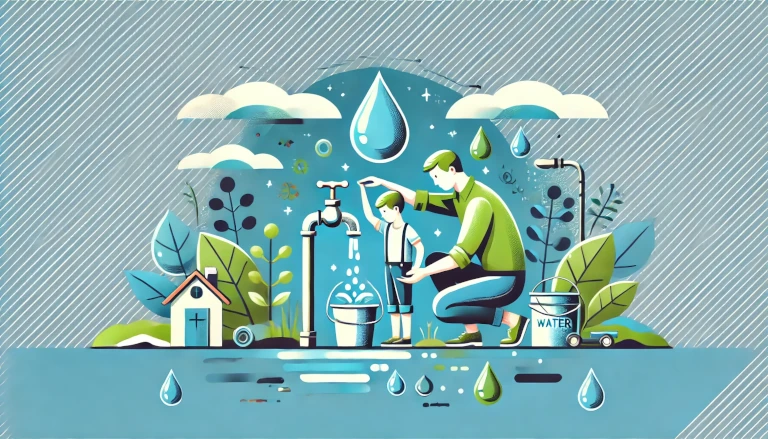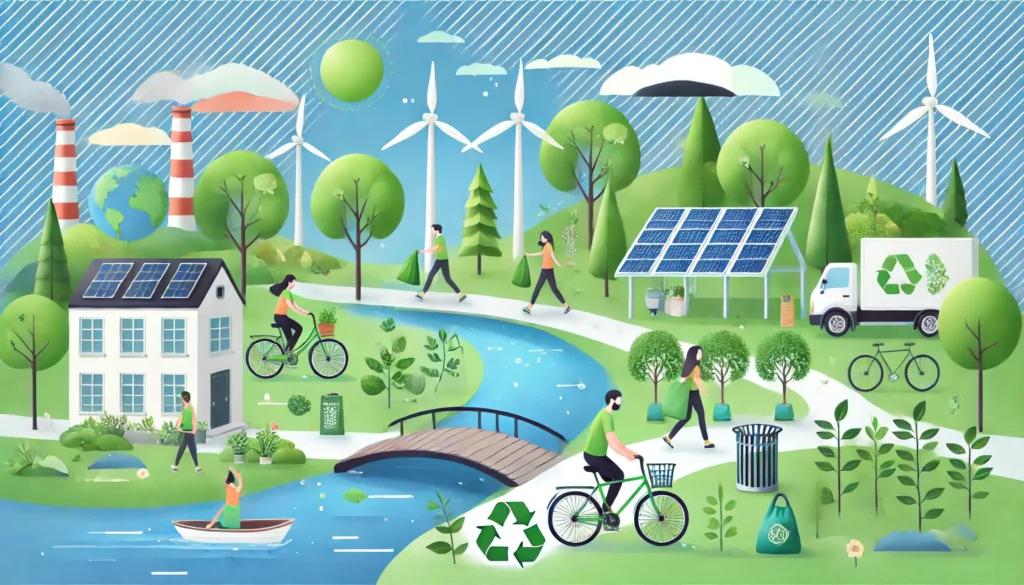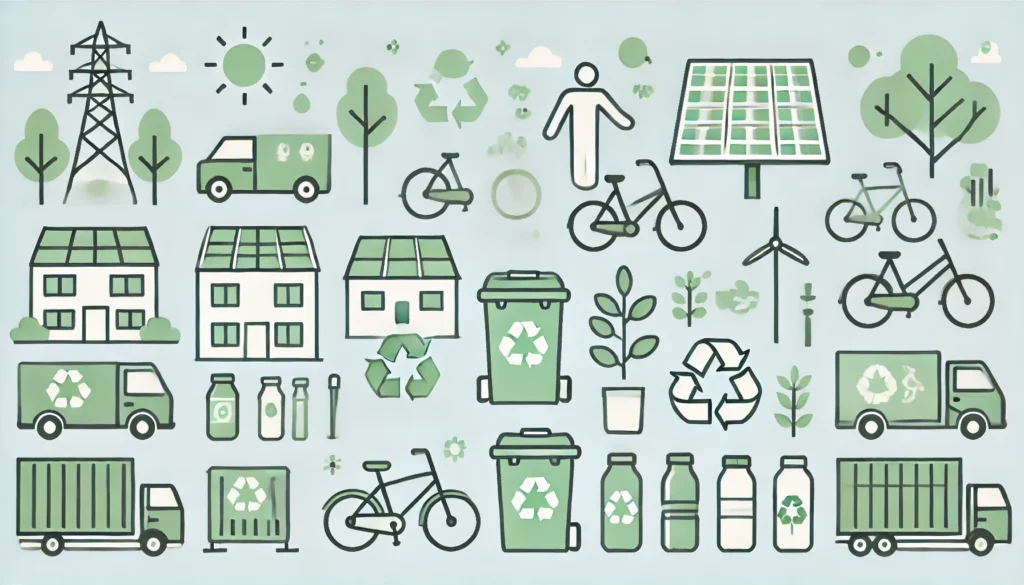Water conservation is essential for sustaining life on Earth. As the global population grows and climate change alters weather patterns, the availability of clean, usable water is becoming more limited. It is important for everyone to take responsibility and find ways to conserve water in daily life. In this blog, we’ll explore what water conservation means, why it’s important, and practical tips you can follow to help save water.
What is Water Conservation? 💧🌱
Water conservation refers to the practice of using water efficiently to reduce unnecessary water usage. It means preserving water resources for the present and future by managing water consumption wisely. Conserving water not only helps to protect the environment but also ensures that future generations have access to fresh water.
Why is Water Conservation Important? 🌍🚰
Water is a finite resource, and while 70% of the Earth’s surface is covered by water, only about 1% of it is accessible freshwater. The demand for water is increasing due to population growth, industrial development, and agricultural needs. Therefore, it is crucial to conserve water to avoid water scarcity and ensure that we have enough water for basic needs like drinking, sanitation, and food production.
Here are some key reasons why water conservation is vital:
- Prevents water shortages: Conserving water helps reduce the risk of water shortages in drought-prone areas.
- Saves energy: Water conservation reduces the energy required for water supply, treatment, and distribution.
- Protects ecosystems: Conserving water ensures that rivers, lakes, and other ecosystems have enough water to sustain aquatic life.
- Mitigates the effects of climate change: Reduced water usage lowers the strain on water sources, helping communities adapt to the impacts of climate change.
Simple Ways to Conserve Water at Home 💧🏠
There are many simple yet effective ways to conserve water in our daily lives. Here are a few tips to get started:
1. Fix Leaks 🚰🔧
Leaking faucets and pipes waste a significant amount of water over time. A small drip can waste hundreds of gallons of water each year. Make sure to regularly check for leaks and repair them promptly.
- Example: Fixing a leaky faucet that drips once per second can save up to 3,000 gallons of water per year.
2. Use Water-Efficient Fixtures 🚿💡
Install water-efficient fixtures such as low-flow showerheads, faucets, and toilets. These devices are designed to reduce water usage without compromising performance.
- Example: Low-flow showerheads can save up to 2.5 gallons of water per minute.
3. Turn Off the Tap While Brushing Teeth 🪥🚰
One of the simplest ways to conserve water is by turning off the tap while brushing your teeth. Leaving the water running can waste up to 4 gallons of water per minute.
- Tip: Use a glass of water to rinse instead of keeping the tap running.
4. Water Plants Wisely 🌿💧
Water your garden during the early morning or late evening to minimize evaporation. Using a watering can instead of a hose also reduces water waste. Additionally, planting drought-resistant plants can help conserve water in your garden.
- Tip: Consider installing a rainwater harvesting system to collect and store rainwater for watering plants.
5. Collect and Reuse Water 🌧️♻️
Rainwater can be collected and reused for activities like watering plants or cleaning. Similarly, water from activities like washing vegetables can be reused for gardening purposes.
- Example: Use a bucket to collect water in the shower while waiting for the water to heat up, and then use it for household tasks.
6. Run Full Loads in Washing Machines and Dishwashers 🧺🍽️
Only run your washing machine or dishwasher when you have a full load. This reduces the number of cycles and saves water.
- Tip: Choose energy-efficient appliances that consume less water.
Water Conservation in Agriculture and Industry 🚜🏭
Water conservation isn’t just limited to households; it plays a crucial role in agriculture and industry as well:
1. Efficient Irrigation Systems 🚜💧
Farmers can adopt drip irrigation systems that deliver water directly to the roots of plants, reducing water wastage. Mulching can also help retain soil moisture.
2. Water Recycling in Industries 🏭♻️
Many industries use vast amounts of water for manufacturing and cooling processes. Recycling and reusing water within these industries can significantly reduce water consumption and help conserve freshwater sources.
Real-World Example: Israel’s Water Conservation Success 🌍💧
Israel is one of the world’s leaders in water conservation. Despite being a desert country with limited water resources, Israel has managed to recycle nearly 90% of its wastewater for agricultural use. It also uses cutting-edge technology like drip irrigation to conserve water in farming, setting a powerful example of how water conservation can be achieved on a large scale.
The Role of Public Awareness and Government Policies 📢🏛️
While individuals can play a role in conserving water, public awareness campaigns and government policies are crucial for large-scale water conservation efforts. Governments can implement water-saving regulations, promote the use of renewable water sources, and invest in infrastructure to minimize water waste. Public education is key to helping communities understand the importance of water conservation and adopt responsible practices.
Conclusion: Save Water, Save Life 💧🌍
Water is a precious resource that we all rely on for survival. By making small, everyday changes and adopting water-saving habits, we can all contribute to the global effort to conserve water and protect our planet’s future. Whether it’s fixing a leaky faucet, using water-efficient appliances, or reusing rainwater, every drop saved makes a difference.
Let’s work together to conserve water and ensure a sustainable future for generations to come.
Discover more from Green Ecosystem - Renewable Energy, Agriculture, and Environmental Sustainability
Subscribe to get the latest posts sent to your email.


